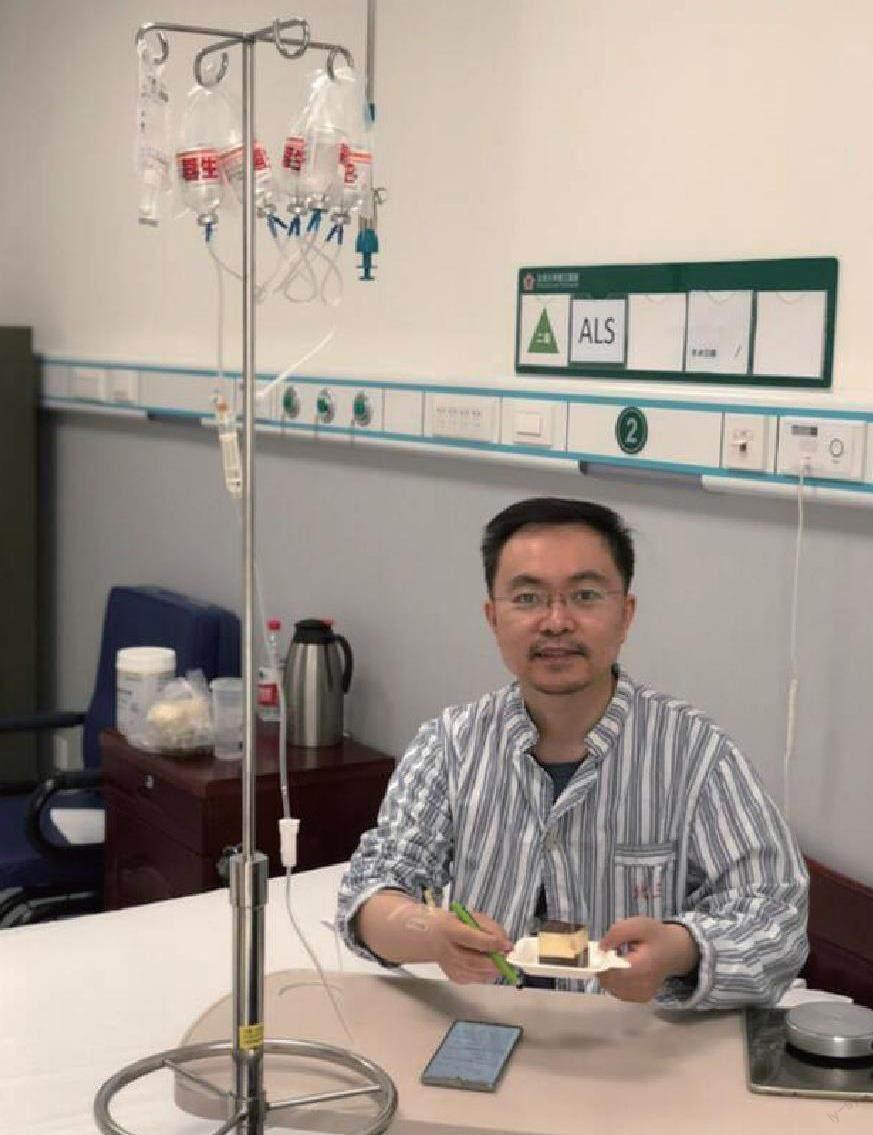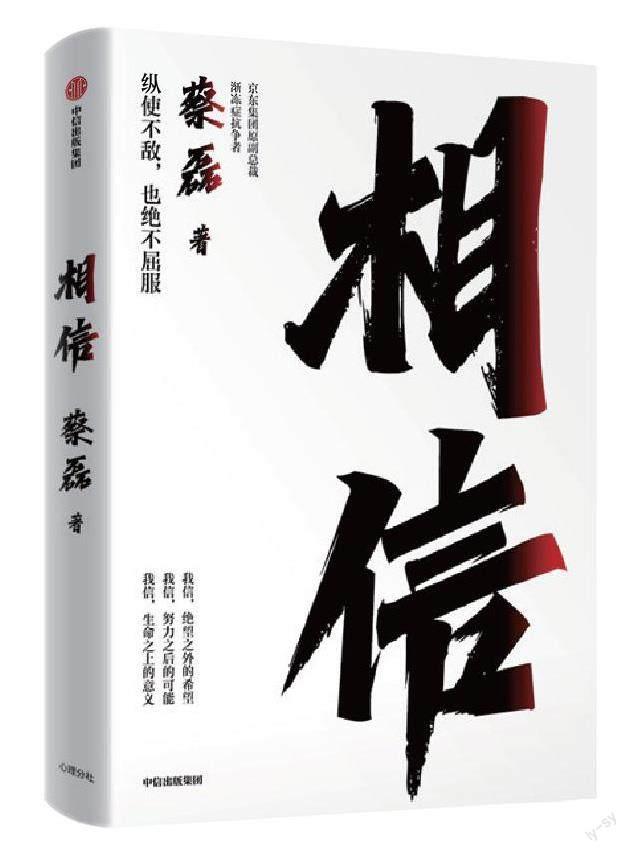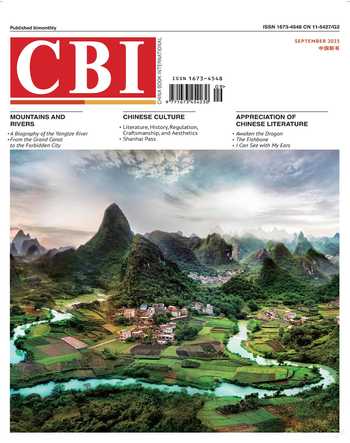Believe



This book chronicles Cai Leis journey from the initial doubts upon diagnosis through his comprehensive fight against Amyotrophic Lateral Sclerosis (ALS). It includes his experiences in treatment, reflections on life, reminiscences of his busy earlier years, and profound insights on family and the nature of life and death.
Cai Lei
Cai Lei is an ALS warrior, initiator of the second Ice Bucket Challenge, Chairman of the ALS Recovery Charity Program under the China Social Welfare Foundation, founder of the Break the Ice ALS Charity Trust, and creator of the “Icebreaker” live-streaming e-commerce platform. He formerly worked in government and diverse industry enterprises and held executive positions in multinational conglomerates and global leading real estate firms.
Believe
Cai Lei
CITIC Press Group
April 2023
59.00 (CNY)
The 2020 Spring Festival holiday flew by. Every morning, Id immediately open WeChat to chat with fellow patients, talking until midnight before falling asleep. The next day, Id wake and continue, with my wife bringing all my meals to my study.
Conversations with fellow patients typically began with discussions about our conditions and ended with mutual encouragement. Some chats lasted an hour or two, while others spanned several days of continuous communication. Typing with my right hand for 16 or 17 hours a day, my arm would be so sore that I couldnt lift it.
Just a few months prior, I could never have imagined spending so much time and energy on strangers Id never met. Now, Im not only an entrepreneur but also a patient. Hearing their stories feels like hearing my own. Their shock, pain, helplessness, and the oscillation between hope and despair are experiences Ive intimately known and continue to live through. From then on, my most frequently used WeChat emoji became the little green man with open arms – “hug.”
You cant laugh or cry; every patients story is heart-wrenching. All you can offer is encouragement and a virtual hug. By mid-2020, I had connected with several hundred fellow patients. Once the patient data platform was essentially established, I created a patient group chat and introduced myself with the following message:
“Hello everyone, Im Cai Lei, an ALS patient and the vice president of JD Group. As you know, theres no effective medication or treatment for our disease. So, Ive developed a comprehensive research platform for ALS patients, aiming to consolidate data from patients in China and around the world using the power of the internet. By monitoring the disease comprehensively, we can provide clinicians and scientists with real research data on ALS, further extracting treatment insights and avoiding redundant trials. Only by helping ourselves can we hope to be saved.”
Upon sending the message, most expressed their support.
“Thats fantastic!”
“Youre right, we cant just sit idly by!”
After months of friendly communication, a foundation of trust had been built. I began to see patients registering and completing surveys in the database backend. To be honest, our data fields and surveys were quite detailed, covering aspects like “how high can you lift your hand?” “how often do you use the restroom after medication?” and “how are family relations?” capturing ongoing data before, during, and after the disease. Completing it requires at least half a day. Many patients couldnt move both hands or even operate their phones, so caregivers filled out the forms. Even though we simplified the survey process to ticking boxes and circling options and arranged for colleagues to assist patients who struggled to upload their data, collecting this information remained a lengthy task.
Naturally, at least a third of the group members stayed observant or silent. As I met more and more fellow patients, I grew to understand their feelings. Some trusted me deeply, willing to communicate privately, but remained inactive in the group. One patient admitted that being in the early stages of the disease and still able to work and care for himself, he didnt want the daily exposure to the grim realities faced by those in later stages, as it added to his emotional burden. Most group discussions revolved around care for those in the mid to late stages, a world he wasnt yet facing and didnt want to. He was far from the only patient who felt this way.
Some patients have been sick for five years or even longer. Over these years, theyve joined multiple support groups, alliances, and organizations, witnessing hope rise and fall time and again, yet nothing has changed. For them, perhaps its rational not to hold out hope.
These reactions are natural, and I understand and accept them. Whether its support, observation, or opposition, as long as our group provides any information about ALS care, precautions, the latest disease developments, and offline guidance that can help patients even a tiny bit or offer emotional support, its beneficial.
Just like the name of our platform: Gradual Healing Support Home. Providing genuine help and value to people is the foundation of everything. Until now, after more than three years of effort, the Gradual Healing Support Home has reached tens of thousands of ALS patients, becoming the worlds largest civilian ALS research data platform. A friend, who once embarked on a big data venture in healthcare alongside Dr. Chunyu, told me that years ago, when they heard Cai Lei wanted to establish a patient data platform, they laughed, thinking, “We tried that nearly eight years ago. Its impossible to succeed.”
Indeed, setting up a patient data platform isnt groundbreaking. Many institutions have tried, like the Huada Group, Chunyu Doctor, and many rare disease alliance organizations, aiming to collect patient data. So, insiders know all too well how difficult the process is: from technical challenges, data collection, to staffing costs, etc. Every step requires massive resources, not to mention getting patients to cooperate, which is a significant hurdle.
“Back then, I didnt know you. After getting to know you better, I thought there might be some hope, but it would be limited to pushing things forward to some extent.”
“And now?” I asked.
“Now I finally understand why you succeeded. First, your motivation to build a big data platform is entirely different. You are an ALS patient. Your drive, determination, and ability to inspire fellow patients far exceeds any commercial institution. Second, your capability and determination are truly outstanding. If it were any other patient, it would have been very challenging.”
“Its the perfect convergence of time, location, and people.” he concluded.
I smiled, having felt the same way myself.
Fate had me encounter this disease at 40. If I were in my twenties or thirties, I wouldnt have the resources and abilities I have now, especially the capacity for continuous innovation and execution. I might be too old to undertake it in my sixties or seventies. Being 40 was just the right “time.”
Being in Beijing, a hub of top medical resources, with top-tier medical institutions like Beijing Hospital, Peking Union Medical College Hospital, and Tiantan Hospital, having access to leading neurology experts and pioneering biotechnologists worldwide, was the perfect “l(fā)ocation.”
Such a database needs active management and trust building with patients, anchored by a patient leader. After all, people are increasingly aware of the value of their data. Why should I provide you with my data? Are you going to sell my data to pharmaceutical companies for profit? What can you offer me? Can you cure me?
So, you need to prove through actions that youre genuinely committed to helping all patients, becoming true friends with them, and understanding their concerns and needs, so theyd be willing to stand alongside you. Thats what Ive been doing. Since adding the first patient on WeChat during the Spring Festival of 2020, Ive considered them friends, empathizing with their grievances, pain, and hopes. To date, Ive personally connected with no fewer than 2,000 patients, and I can accurately detail each persons background, family situation, disease progression, and current status. Because of this, not only do ALS patients trust me, but many of their family members have also volunteered to join our team, assisting with operations research, all passionately working for this community.
For most institutions, this might be a job. But for us, its a matter of life and death for ourselves and our loved ones. Maybe its destined that I do this: the right people, place, and time.

